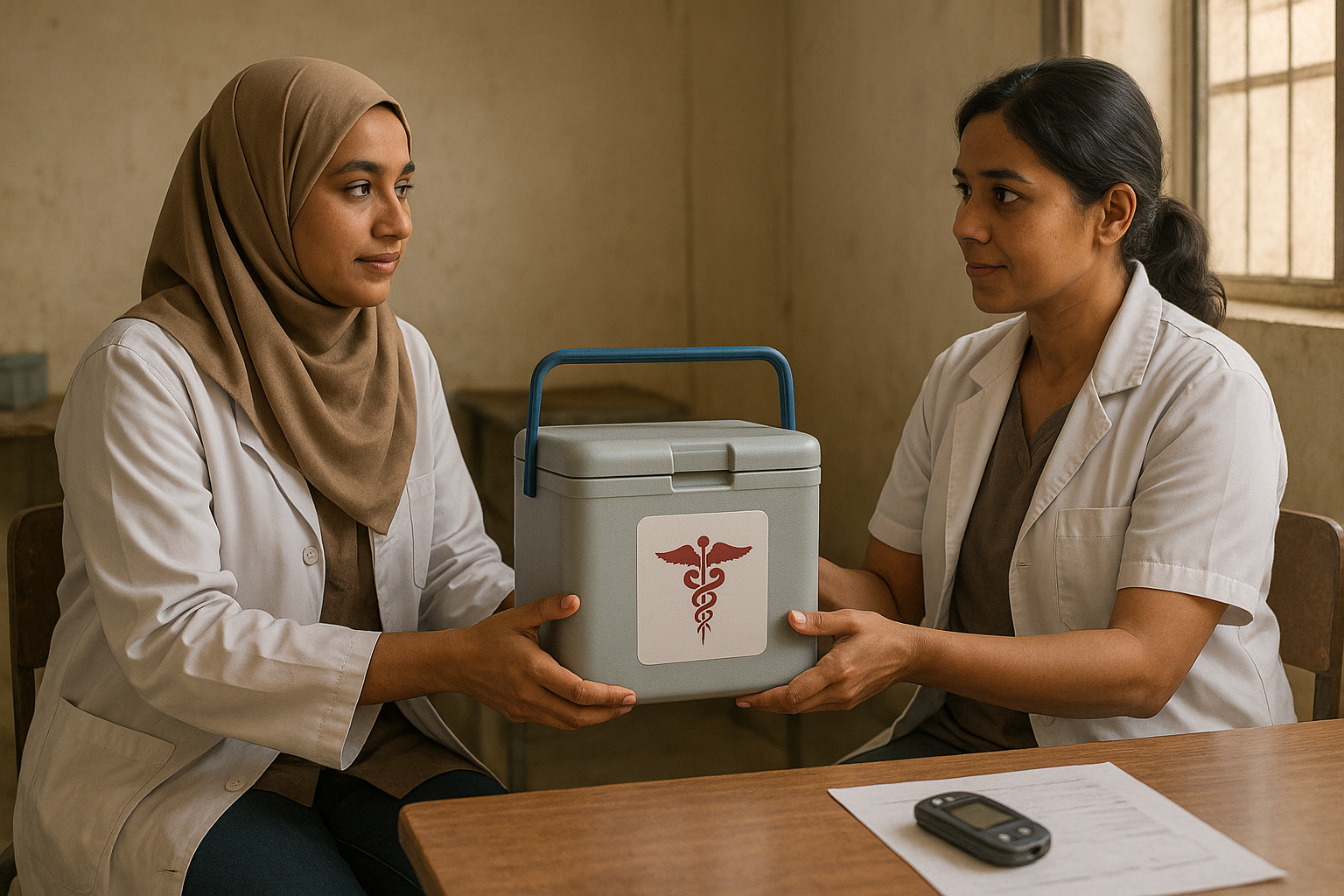
Written by Nadège Sheehan, PhD – Co-Founder & President of OneGuild Institute. She specializes in peacebuilding, health equity, and conflict-affected systems.
Health as a Shared Language
Diplomacy is often imagined as the work of envoys and ministers, gathered in official halls. But in fragile or conflict-affected settings, diplomacy takes quieter forms. It is the nurse who negotiates safe passage for insulin deliveries. It is the doctor who persuades a local leader to keep a cold chain generator running. It is the community health worker who arranges cross-line referrals so a patient with diabetes complications can reach dialysis.
This is health diplomacy. And it often unfolds in spaces far from negotiation tables.
The Practice of Everyday Diplomacy
Health diplomacy is the use of care as common ground — a way to foster cooperation where mistrust runs deep. In these contexts, formal agreements are rare. Instead, progress is made through small, practical commitments:
Each of these acts may seem minor, but together they build habits of cooperation. They show that working together is still possible, even when broader politics are frozen.
Who Makes This Work Possible?
Diplomacy in health rarely begins with those in power. It begins with practitioners whose credibility is grounded in service. Nurses, doctors, community health workers — and often women on the frontlines — are trusted precisely because they are seen as serving life, not politics.
Their role is to bridge divides: between systems and communities, between formal authority and informal networks, between scientific evidence and cultural understanding. In many fragile contexts, women are especially visible in this role, quietly turning their clinical authority into negotiating power.
Why This Matters Now
As global challenges grow more complex — from pandemics to climate-driven displacement to rising burdens of non-communicable diseases like diabetes — the health community will be called on not only to heal, but also to connect. The ability to negotiate cooperation around health is no longer an optional skill. It is central to continuity of care, and to stability itself.
Health diplomacy does not seek headlines. It seeks trust. And in building trust, it strengthens the possibility of peace.
In fragile settings, a nurse’s negotiation to keep insulin cold can be as consequential as minister’s decree.
Health diplomacy is not abstract policy. It is daily practice: the quiet work of professionals who turn care into cooperation. By recognizing and supporting their role, we do more than improve health outcomes. We help sustain the fragile threads of peace.
__________________________________________
➝ Read Next: Global Health Diplomacy: A Quiet Bridge to Peace
This article also appeared in the Peace & Health Initiative monthly newsletter. Subscribe here to receive future issues directly.